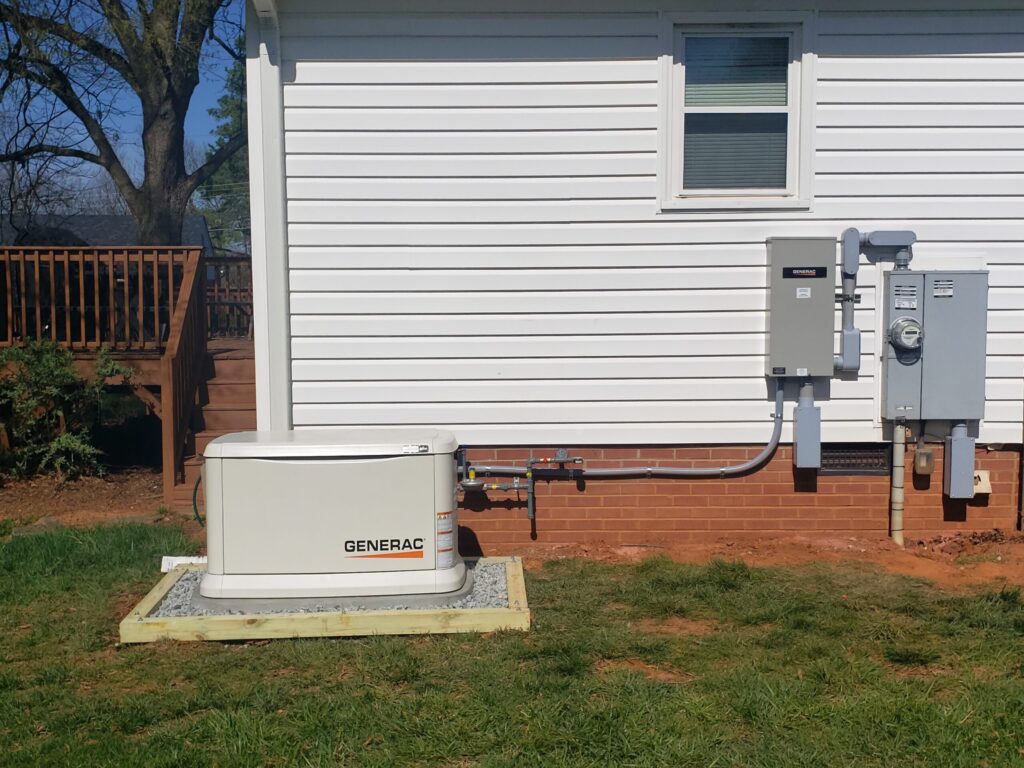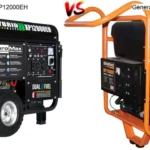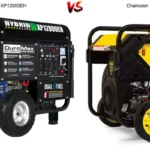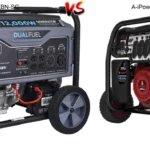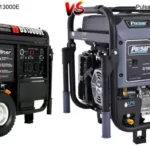When it comes to powering your home in case of a power outage, one of the best solutions is an in-home generator. Choosing the right generator for your home can be a daunting task, but with the right information, you can make an informed decision that will serve you well in the long run. In this comprehensive guide, we’ll walk you through the process of choosing the right in-home generator, including a review of some of the top models on the market.
What Is an In Home Generator?
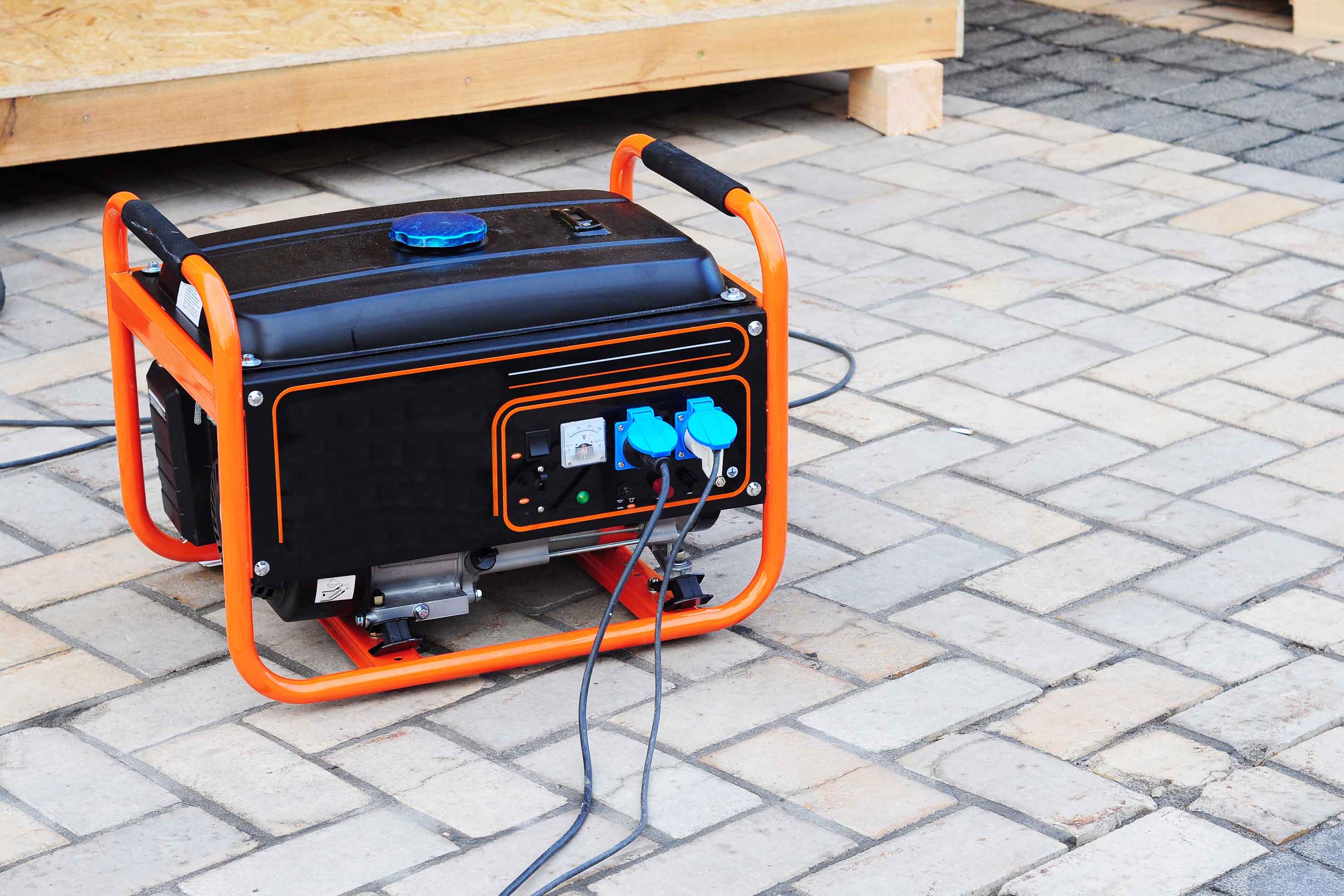
An in home generator is a device that provides backup electricity in the event of a power outage. It works by converting stored fuel, such as gasoline, propane, or diesel, into electrical power. When the power goes out, the generator automatically kicks in, providing electricity for essential appliances, lights, and other devices.
The size of the in home generator you need is determined by the amount of power you need to power essential items. Generally, the larger the generator, the more items you can power. It’s important to choose a generator that is powerful enough to provide power to all the necessary items in your home.
In home generators come in a variety of sizes, shapes, and styles. Some are portable and can be moved easily, while others are stationary and require installation. Portable units are ideal for those who need backup power during emergency situations, while stationary units are better suited for continuous power outages.
| Type of Generator | Features |
|---|---|
| Portable Generators | Lightweight and easy to transport, ideal for emergency situations |
| Standby Generators | Requires installation, provides continuous power during outages |
| Inverter Generators | Quiet operation, suitable for sensitive electronic applications |
In home generators are an important part of ensuring that you and your family have access to power during an emergency. It’s important to do your research to determine which type of generator is best for your home.
Advantages of an In Home Generator
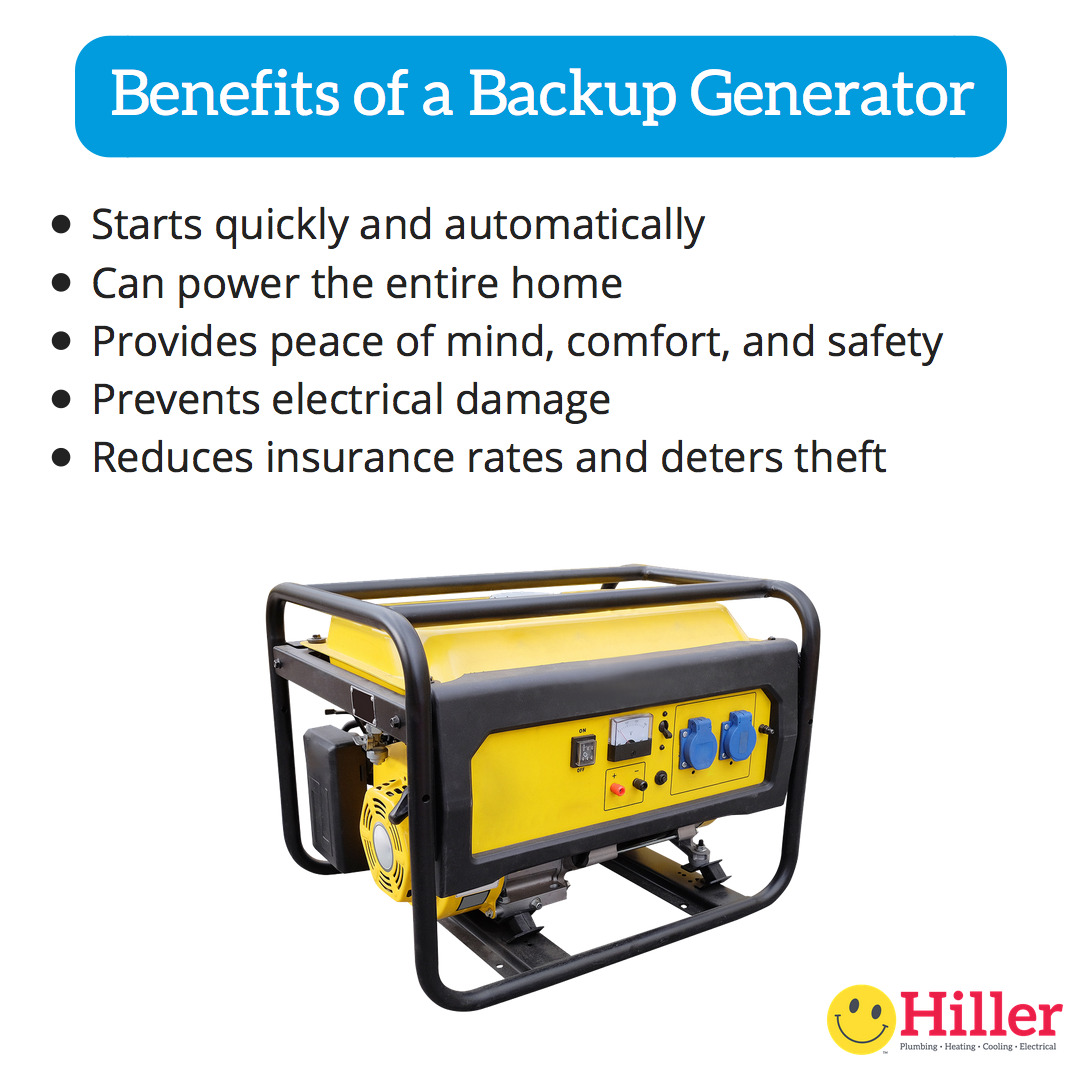
Having an in-home generator can provide many benefits and is a great way to ensure that you have a reliable power source in the event of an unexpected power outage. Here are some of the advantages of having an in-home generator:
- Reliability: In-home generators are designed to provide consistent power and are often very reliable.
- Convenience: Having an in-home generator makes it easy and convenient to get power in the event of an outage.
- Cost-Effectiveness: In-home generators are often more cost-effective than other power sources, making them a great option for those who are looking to save money.
- Safety: Having an in-home generator can help to ensure that your family is safe during power outages, as it can provide a reliable source of power.
- Flexibility: In-home generators can be used to power a variety of different appliances and devices, making them a great option for those who need a versatile power source.
Disadvantages of an In Home Generator

Installing a generator in your home can be a great way to ensure you have a reliable source of power in the event of an outage. However, there are some drawbacks to consider before purchasing an in home generator.
The biggest disadvantage to owning an in home generator is the cost. Generators can be quite expensive, as you not only need to pay for the generator itself but also for the installation, maintenance, and fuel. Additionally, if you need to upgrade your electrical panel to safely accommodate the generator, this can add to the cost.
In addition to the cost, generators can also be quite noisy. This can be disruptive to family life and can be a nuisance to your neighbors. Some generators also produce exhaust fumes, so you’ll need to make sure the generator is kept in an area with adequate ventilation.
Finally, generators need regular maintenance and inspections to ensure they are functioning properly. This means you’ll need to plan on having a professional service the generator at least once a year.
Overall, while an in home generator can be a great way to ensure you have a reliable source of power, it’s important to consider the costs and other potential drawbacks before making a purchase.
Types of In Home Generators
1. Portable Generators
Portable generators are a great choice for those who need an emergency backup power supply. They are easy to transport and store, making them a great option for those who live in an area that is prone to power outages. Portable generators range in size, from small, lightweight models to larger models that can provide enough power to run a home.
2. Standby Generators
Standby generators are a more permanent solution to providing back up power in a home. These generators are installed outside of a home and are connected directly to the home’s electrical system. They are powered by a fuel source, such as natural gas or propane, and can provide enough power to run most of the home’s appliances during a power outage. Standby generators are more expensive than portable generators, but they are more reliable and require less maintenance.
Cost of an In Home Generator
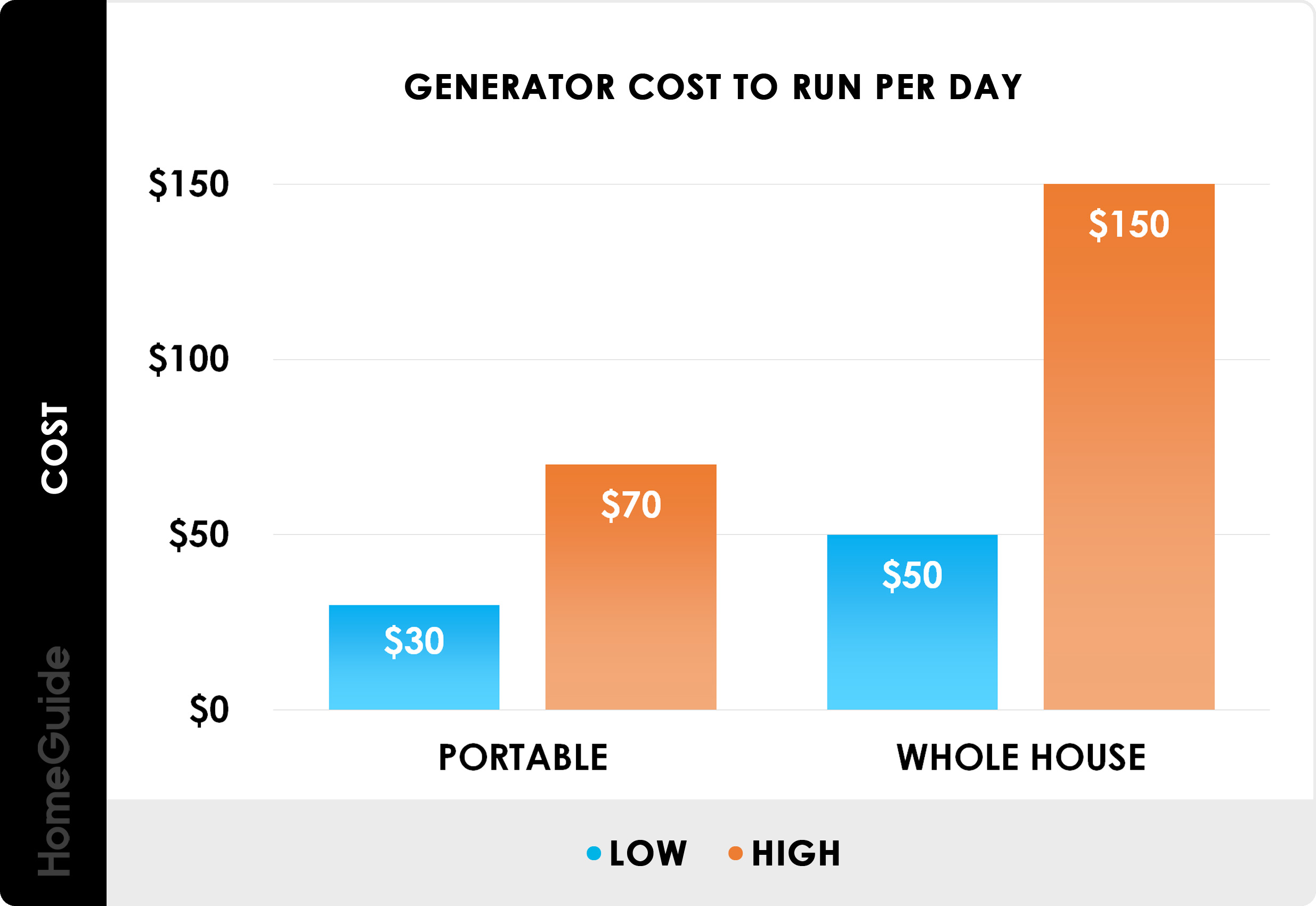
The cost of an in home generator varies depending on the size and power needs of your home. Generally, the cost of an in home generator installation can range from a few thousand dollars to tens of thousands of dollars. A few factors to consider when determining the cost of an in home generator include:
- Generator size and type
- Fuel type
- Installation costs
- Permits and inspections
- Maintenance and repairs
The generator size and type will be the primary factor in determining the cost of an in home generator. Generators can range from small portable units to large, commercial-grade units. The size and power needs of your home will determine the type of generator you will need. Portable generators range from around $500 to $2,000, while larger, commercial-grade models can cost up to $10,000 or more.
The fuel type of the generator is another factor to consider when determining the cost of an in home generator. Most generators run on either gasoline or diesel. Gasoline is generally the cheaper fuel option, while diesel is more expensive. However, diesel generators are more fuel-efficient and often last longer than gasoline generators.
Installation costs will also affect the overall cost of an in home generator. Professional installation is generally recommended and can range from a few hundred dollars to several thousand dollars. Additionally, permits and inspections may be required, which can add to the total cost of an in home generator.
Finally, ongoing maintenance and repairs can add to the cost of an in home generator. Regular maintenance is necessary to keep your generator running properly, and repairs may be needed if the generator malfunctions or breaks down. This can be an additional expense that you should consider when calculating the total cost of an in home generator.
In Home Generator Maintenance
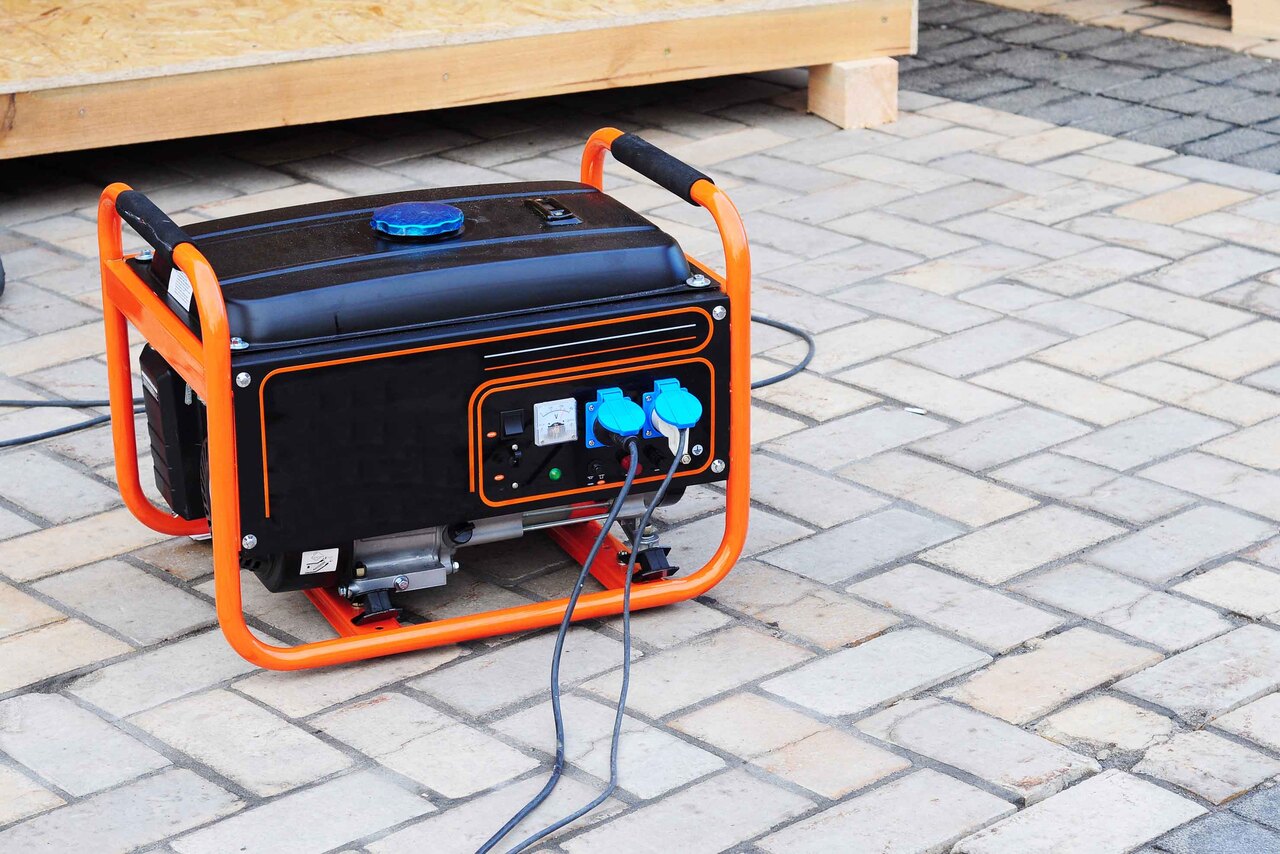
Having a generator installed in your home is a great way to ensure you have a reliable source of power during a power outage. However, it’s important to keep up with regular in home generator maintenance in order to ensure your generator is running properly and efficiently. Here are some tips for how to maintain your in home generator.
First and foremost, it’s important to keep the generator clean. Remove any debris or dirt that may accumulate around the generator, and make sure to keep the generator’s air intake and exhaust ports clear and unobstructed.
It’s also important to check the oil level regularly. Make sure that your generator’s oil levels are filled to the manufacturer’s specifications. Additionally, be sure to use the type of oil that your generator’s manufacturer recommends.
In addition, it’s important to regularly check your generator’s fuel levels and make sure it is using the right type of fuel. If you’re using gasoline, make sure it is of a high quality and has been properly stored. Diesel generators should use only clean and fresh diesel fuel.
Finally, it’s important to keep up with regular maintenance and service of your in home generator. Make sure to have your generator serviced by a qualified technician at least once a year. This will help ensure that your generator is running safely and efficiently.
By following these tips for in home generator maintenance, you can help ensure that your generator will provide reliable power when you need it most.
Finding the Right In Home Generator
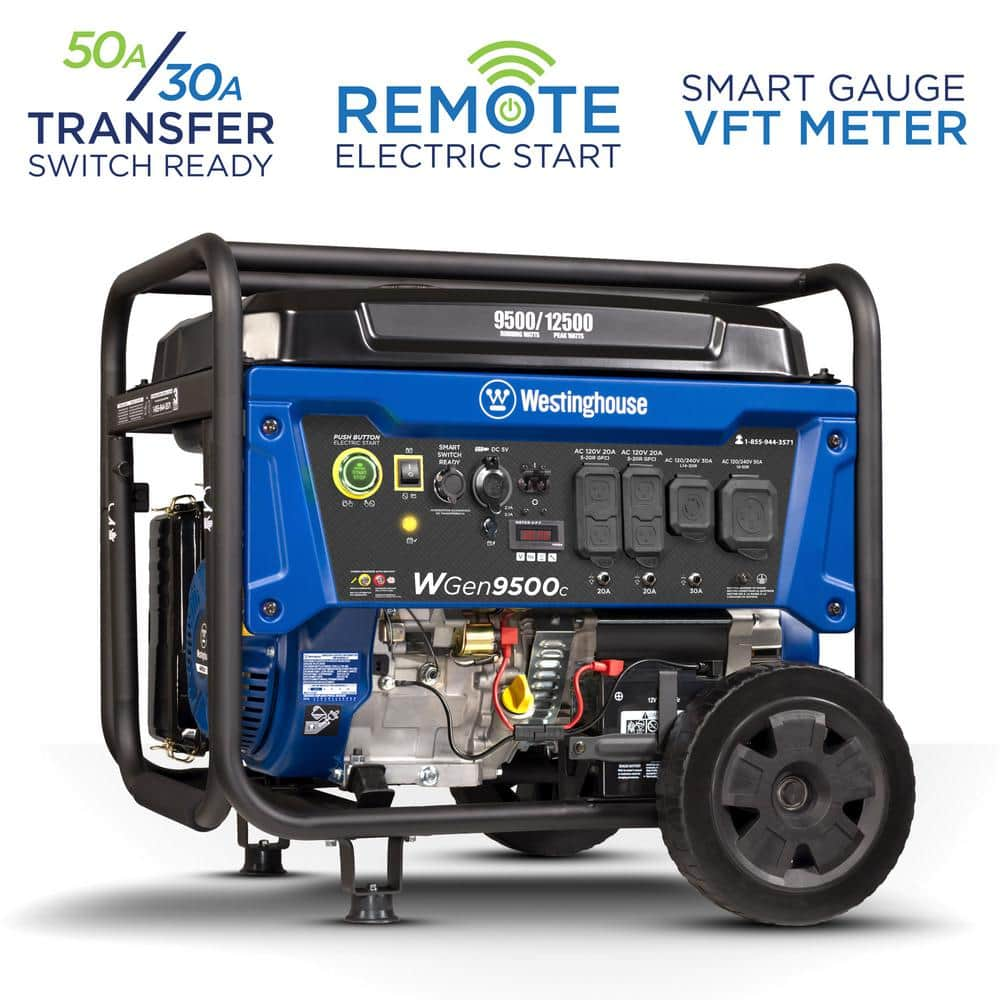
Choosing the right in home generator can be a daunting task. With so many makes and models available on the market, it can be hard to determine which one is the best for your needs. There are several factors that should be taken into account when making the decision to buy an in home generator.
First and foremost, you need to consider the size and capacity of the generator. It’s important to choose a generator that is capable of providing the amount of power you will need to run your home’s essential electrical items. Calculate the wattage needed for all of your appliances and electronics and make sure the generator you choose is able to provide enough power.
Next, consider the type of fuel the generator uses. There are several types of fuel that can be used to power a generator, including natural gas, propane, and gasoline. Each fuel type has its own pros and cons and the type you choose will depend on your specific needs and circumstances.
Another important factor to consider is noise level. Make sure the generator you choose is quiet enough for you and your family to live with. Generators can be quite loud, so it’s important to choose one that is not too loud.
Finally, consider the cost of the generator. Generators can range in price, so it’s important to determine your budget and decide what features are most important to you. You can often find a generator that fits your needs and budget if you shop around.
By taking the time to consider the size, fuel type, noise level, and cost of the generator, you can make an informed decision and choose the right in home generator for your needs.
1. Size
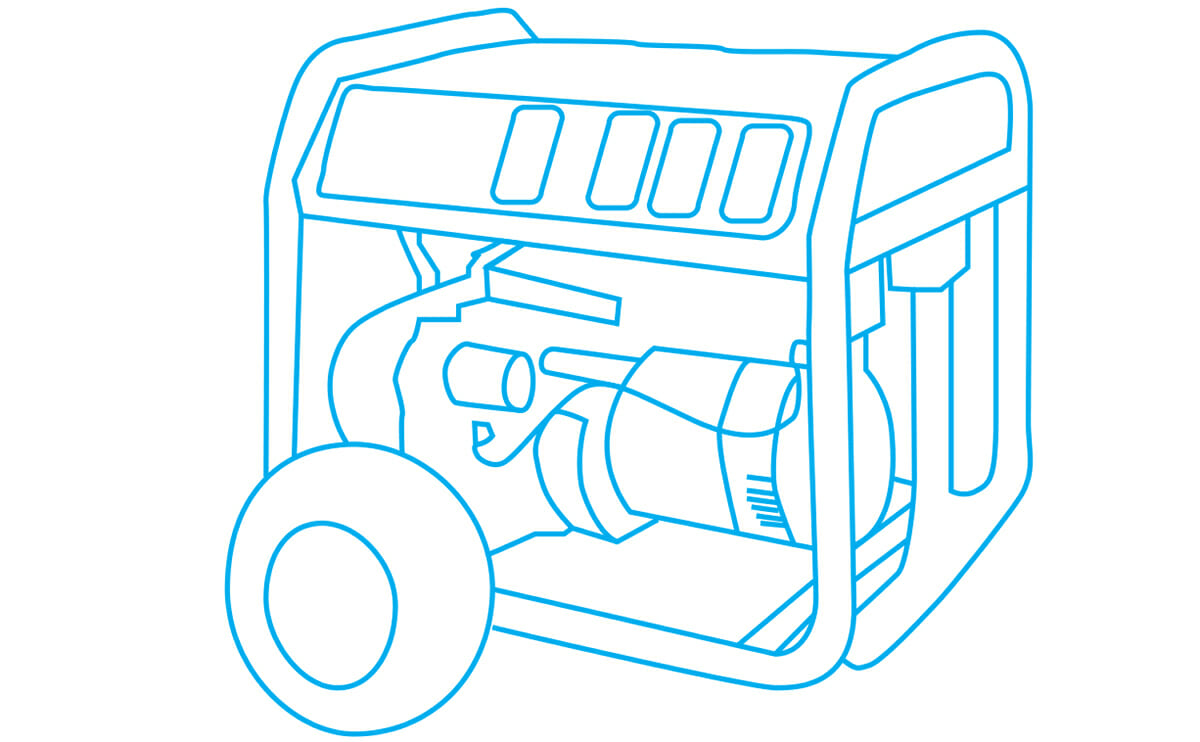
When it comes to purchasing an in home generator, size is an important factor to consider. Depending on the size of your home and the amount of power you need, the size of the generator you select can vary greatly. Below is a table outlining the size and power requirements for each size of in home generator.
| Generator Size | Power Requirements |
|---|---|
| Small (1-2 kW) | Enough to power a few essential appliances such as a refrigerator and a few lights. |
| Medium (3-5 kW) | Enough to power a larger refrigerator, a few lights, a television, and a computer. |
| Large (6-12 kW) | Enough to power a full sized refrigerator, several appliances, lights, and a heating or cooling system. |
When considering the size of an in home generator, it’s important to think about your power needs and the size of your home. A larger generator may be necessary if you need to power a large number of appliances, while a smaller generator may be sufficient for just a few essentials. It’s best to talk to a professional before making a purchase to make sure you are selecting the right size for your needs.
2. Power Output
An in home generator can provide a range of power output depending on the size and type of generator you choose. The power output of an in home generator is measured in watts (W). Portable generators usually range from 1,000 to 10,000 watts, while standby generators can range from 8,000 to as high as 150,000 watts.
| Generator Type | Power Output Range (W) |
|---|---|
| Portable | 1,000 – 10,000 |
| Standby | 8,000 – 150,000 |
The amount of power your in home generator can deliver will depend on the size of your home, the size of the generator, and the equipment that you use. It is important to select the right size and power output for your needs. The larger the generator, the more power it can deliver. It is also important to consider the type of fuel the generator uses. Some generators are designed to use natural gas, propane, or diesel fuel.
Frequently Asked Questions
1. What are the benefits of having a backup power generator for home?
Having a backup power generator for home can provide a number of benefits, including:
- Reduced risk of power outages – With a backup generator, you can be assured that your home will have access to electricity even during power outages. This can help protect your home from any potential damage that could result from an outage.
- Increased safety – A generator can help keep your family safe during a power outage. It can provide lighting, heat, and other essential functions that can be vital during an emergency.
- More reliable electricity – Backup generators are designed to provide reliable, steady power to your home. This means that you won’t experience annoying power fluctuations or spikes that can cause damage to electronics.
- Lower energy bills – A generator can help save you money on your energy bills. Since it runs on natural gas or propane, it can be a more cost-effective alternative to relying on electricity from the grid.
2. What size generator should I buy for my house?
When selecting a generator for your home, you’ll want to consider the size of the generator you need. The size of the generator will depend on how much power you need to run your essential appliances and electronics. To determine the size of generator you need, consider the following:
- What type of power output do you need?
- How much power do you need to run your essential appliances and electronics?
- How much power can your existing wiring handle?
- Are there any restrictions on the size of generator you can use?
To calculate the total wattage of your essential appliances and electronics, add up the wattage of each item. The wattage of the item can usually be found on the back of the appliance or in the owner’s manual. Once you have the total wattage, you can determine the size of generator you need by consulting a wattage chart or calculator.
When selecting a generator, it’s important to make sure it is rated to handle the total wattage of your essential appliances and electronics. If the generator is not rated to handle the total wattage, it may not be able to power your home. Additionally, you’ll want to make sure the generator is sized to fit in the space you have available for it.
By taking the time to properly calculate the size of generator you need for your home, you can be sure that your generator will be able to power your essential appliances and electronics during a power outage.
3. What are the advantages of a gas generator for home backup power?
Gas generators are a popular choice for home backup power. They are relatively inexpensive, easy to install and operate, and readily available. Here are the main advantages of using a gas generator for home backup power:
- Cost-effective – Gas generators are more affordable than other types of generators.
- Easy installation – Installing a gas generator is straightforward, and most people can do it without hiring a professional.
- Easy to use – With a few simple steps, you can be up and running with a gas generator in no time.
- Reliable – Gas generators are highly reliable and provide a steady source of power when you need it.
- Widely available – Gas generators are widely available, so you can find one that meets your needs.
Utilizing a gas generator for home backup power can be a great option for many households. It is cost-effective, easy to use and install, and reliable.
4. What are the benefits of buying a standby generator?
Standby generators are a great way to provide your home with a reliable source of backup power in case of outages. There are several benefits to owning a standby generator, including:
- Reliability and convenience: A standby generator provides you with a reliable source of power during power outages. It is also convenient as you don’t have to worry about setting up a generator every time you experience an outage.
- Cost savings: Standby generators are a cost-effective way to keep your home running in case of power outages. They require less maintenance and fuel than portable generators, which can help save you money in the long run.
- Safety: Standby generators are designed to be safer than portable generators, as they are installed outside your home and are powered by natural gas or propane. This eliminates the risk of carbon monoxide poisoning, which can be a serious health hazard.
- Peace of mind: When you have a standby generator, you don’t have to worry about power outages disrupting your daily life. This can provide a great peace of mind and allow you to focus on other tasks.
5. How do I choose the best generator for my home?
Choosing the best generator for your home can be a difficult task. There are several factors to consider when making this decision, including the size of your home, the type of fuel you will use, and the type of generator you need. Here are some tips to help you make the best choice for your home:
- Consider the size of your home. If you have a large home, you will need a larger generator to power all of your appliances and electronics. However, if you have a smaller home, you may be able to get away with a smaller generator.
- Think about the type of fuel you will use. Generators use either gasoline, diesel, or propane fuel. Each type of fuel has its own pros and cons, so consider which type of fuel is the most appropriate for your needs.
- Choose the type of generator you need. Portable generators are great for camping and tailgating, while standby generators are perfect for backup power in case of an outage. If you don’t need a portable generator, you should opt for a standby generator to provide automatic backup power.
- Look for features that are important to you. Some generators come with features such as noise reduction, automatic shutoff, and overload protection. Consider which features are important to you before making your decision.
- Check the warranty and customer service. Most generators come with a warranty, so make sure to read the fine print before making your purchase. Also, make sure the company offers good customer service in case you have any questions or issues.
By considering these factors, you should be able to choose the best generator for your home. Remember to do your research and compare different models before making your final decision.
Conclusion
When it comes to deciding on the right in home generator, it’s important to consider your specific needs and budget. While some generators offer more power and features, there are also more affordable options available. Consider the size of your home, how often you plan to use it, and the type of fuel you want to use. Additionally, check out the reviews of different in home generators to get a better idea of what will work best for you. By taking the time to do your research, you can find the in home generator that will best suit your needs and budget.
References
- Consumer Reports. (2020). Generator Buying Guide. Retrieved from https://www.consumerreports.org/cro/generators/buying-guide/index.htm
- Generac. (2020). How to Choose the Right Size Generator. Retrieved from https://www.generac.com/home-generators/buying-a-generator/how-to-choose-the-right-size-generator
- Kohler. (2020). Generator Buying Guide. Retrieved from https://www.kohler.com/us/en/generator-buying-guide/article/buying-guide-home-generators.html
- Moskowitz, P. (2020). The 8 Best Home Generators of 2020. Retrieved from https://www.thespruce.com/best-home-generators-4152076
- Westinghouse. (2020). How to Choose the Right Generator. Retrieved from https://westinghouseportablepower.com/blogs/news/how-to-choose-the-right-generator
